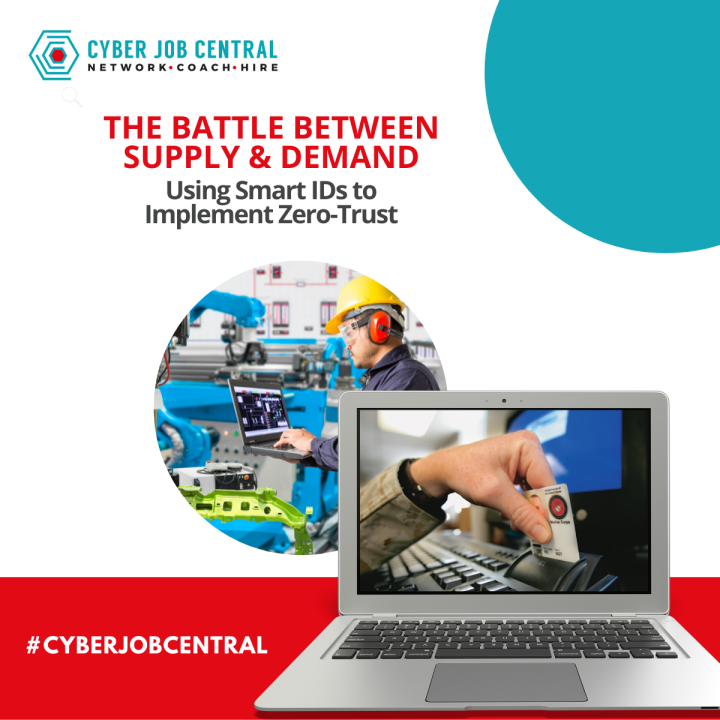The Battle Between Supply & Demand

Using Smart IDs to Implement Zero-Trust
The Identity Theft Resource Center (ITRC) reported that the number of public data breaches from January-September 2021 exceeded the number of similar breaches from all of 2020 alone. With ransomware attacks in 2021 passing the number of such attacks in 2020 and 2019 combined, the number of public data breaches is well on its way to exceeding 2017’s record for the most public data breaches in a single year, with phishing and ransomware being the top two most frequent types of cyberattacks. Some government agencies such as the Department of Defense (DoD) have combatted this through the implementation of ID smart cards known as Common Access Cards (CACs).
Introduced in the early 2000’s, CACs are a form of multi-factor authentication. Requiring both information the user knows (their PIN) and something the user has (their Common Access Card), CACs solve a major hurdle in the battle to protect government assets from cyber threats and have become instrumental in protecting the identity verification elements necessary for a zero-trust framework. Worldwide shipments of smart Government ID cards is estimated to rise from 500.1 million in 2020 to 554 million in 2021. The more this school of thought is adapted and infiltrated among more government agencies, the easier it will be for professional IT teams to necessitate a zero-trust network access (ZTNA) technologies transition.
But factors that continue to negatively affect the production of CACs include the future state of the COVID-19 global pandemic, as well as the ongoing global chip shortage that has led to major price gouging and is likely to continue even after 2022. The federal government took steps to address this issue earlier this year, with the Senate passing the CHIPS for America Act in June 2021 which included $52 billion allocated to incentivize U.S. manufacturers and suppliers to increase domestic semiconductor production needed to create more ID smart cards within all industries including the federal government. With the bill stalled at the House over the last six (6) months, the Biden Administration is urging Congress to pass the bill before Christmas this year. The passing of this bill would greatly strengthen the U.S. economy and national security, ensuring the U.S. remains the world leader in technology advancement.
by LaShaune R. Littlejohn of Phoenix Star Creative, LLC



